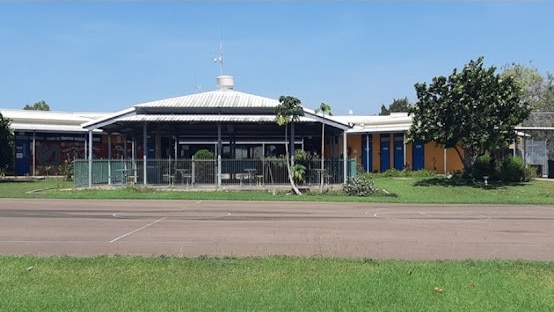Closure of Mission Australia rehab centre at Berrimah to make way for prison a blow to justice: Lawyers
Top End lawyers say the closure of a 40-bed alcohol and drug rehab facility at Berrimah to make way for a new prison will lead to more recidivism and longer periods on remand, clogging the system and slugging taxpayers.

Northern Territory
Don't miss out on the headlines from Northern Territory. Followed categories will be added to My News.
Top End lawyers say it’s harder than ever to find residential alcohol and drug rehabilitation beds for their clients after the recent closure of a 40-bed facility to make way for a new prison.
The Mission Australia Residential Rehabilitation Treatment Service, located within Berrimah’s Stringybark Centre, ceased operations on July 19.
The NT Government announced in April the centre would be repurposed into a women’s prison holding 110 inmates.
Speaking in the Supreme Court of the Northern Territory in June, defence counsel Jacob Henderson, who was representing double-fatal Palmerston driver Andrea Groening after she breached her suspended sentence, said the facility’s closure was a tough blow to clients’ prospects.

There were “longer wait lists than there have ever been,” Mr Henderson told Chief Justice Michael Grant.
Criminal Lawyers Association of the Northern Territory president Beth Wild said the loss of rehabilitation beds meant offenders were spending more time behind bars than they otherwise might, which is distorting the justice system.

She said if a person wanted to plead guilty and receive a suspended sentence with a rehabilitation component, or a person was remanded in custody and wanting to apply for bail, delays in beds meant frequent adjournments.
“That delay is putting pressure on prisons, which we know is the most expensive way of dealing with defendant,” Ms Wild said.
“We’re remanding people whose offences aren’t that serious, offences where intoxication might be the root cause.
“To deal with that root cause, we need them to attend a residential rehab facility... and there’s not enough of those.”
Rehab facilities provided an important middle step between prison and the community, a way of avoiding people “just being left at the bus stop in Palmerston,” Ms Wild said.
Nearly three-in-five offenders (58.2 per cent) released from custody return to prison within two years in the Territory, the highest rate in Australia.
In a statement, NT Health said despite the closure of the Berrimah facility, there had been “no decrease to rehabilitation service capacity or funding in the greater Darwin region”.
A spokeswoman said Mission Australia’s funding had been reallocated to other existing rehabilitation services to “increase their bed numbers”.
NT Health is in the process of transitioning to a new model of care known as Top End Integrated Care Service (TEICS), which uses “holistic, evidence-based and culturally sensitive approaches for individuals facing substance use challenges and other co-occurring conditions,” the spokeswoman said.
“[It] was designed through rigorous community consultation and will better meet the needs of clients and service demands compared to the previous model.”
A tender to deliver TEICS closes on Friday, and the department expects it to begin operations by October.
Mission Australia state director NT, Sue Budalich, said the Darwin Sobering Up Shelter, which also operated at Berrimah, would remain open for now and be moved to a new location in time.
“There is a huge need for mental health and AOD [alcohol and other drug] rehabilitation services in the NT and we look forward to working with the NT government to meet that need,” Ms Budalich said.
At a macro level, recent Australian Institute of Health and Welfare figures show the Territory is delivering publicly funded AOD treatment at a tapering rate: just 1424 clients per 100,000 population were seen in 2022–23, compared to 1796 per 100,000 in 2019–20.
In the NT government budget papers released earlier this year, NT Health revealed that in 2023–24, it missed its target for the number of publicly funded AOD assessments undertaken by 500.
The failure “reflects continued challenges in attraction and retention of suitably qualified clinical staff,” NT Health said in the papers.
More Coverage
Originally published as Closure of Mission Australia rehab centre at Berrimah to make way for prison a blow to justice: Lawyers





